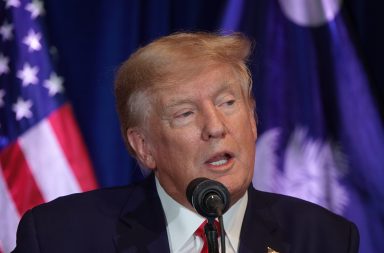Although Qatar has been cut off by several other Middle Eastern neighbors for supporting and harboring terrorists, its sovereign wealth fund is doing business as usual and has investments and partners in New York City and around the globe.
The Qatar Investment Authority (QIA) was created to invest earnings from liquefied natural gas, and has become one of the world’s largest investors.
Here it now owns 9.9 percent of the stock in Empire State Realty Trust, which owns the Empire State Building, but it does not have a board seat.
Along with stock in Brookfield Property Partners, QIA is its partner in Manhattan West. QIA is also partners with Tishman Speyer in its Long Island City project, and is partners with Vornado Realty Trust at 225 Central Park South.
QIA’s former chief and the country’s former prime minister is partners with Harry Macklowe in both the retail at 432 Park Ave., which was financed by QInvest, controlled by his son, and in the redevelopment of One Wall St., which was financed by the Qatar National Bank, the Real Deal reported.
QIA has an office at 9 W. 57 St. and in New York City it has provided large mortgages to a handful of luxury apartments.
Last year, QIA said it would invest $45 billion in the US over the next five years.
It should also be noted that QIA has not been identified as being affiliated with the list of 59 individuals and 12 groups that were allegedly associated with terrorists and terrorism, but it is owned by the government.
Other investors from Qatar, real estate sources said, are still proceeding with local real estate deals.
QIA is also the largest shareholder of Volkswagen. And other Qatari companies and individual investors own assets such as the fashion firm Valentino and the entertainment company Miramax.
At a news conference earlier this month, President Trump said, “Nations came to me about confronting Qatar … The time had come to call on Qatar to end that funding and its extremist ideology in terms of funding.”
Several Middle East countries have cut banking and trade ties with Qatar, and their airlines have stopped flights.
The political situation is above my pay grade and until it is sorted out, it is unclear what else the US will do. Qatar’s ruler has already turned down an invite from Trump to come to the White House to discuss the situation.
But remember, most recently, the US seized control of 650 Fifth Ave. from those it says funneled money to the former Iranian government and passed laws allowing US citizens that were the victims of terrorism to recover funds through seized assets.
Victims of terrorism who have already won judgments against Iran have been rebuffed due to conflicting terminology in the Foreign Sovereign Immunities Act (FISA) and its section covering Terrorism Risk Insurance Act (TRIA).
The Counter Extremism Project (CEP), which focuses on rooting out terrorists, said it is unaware of a specific terror-linked individual working at QIA.
“Of course, QIA is a state-run fund, and the issue the Gulf Cooperation Council countries have right now is the Qatari state policy of supporting terrorists and extremist movements,” said David Ibsen, executive director of the CEP.
“A U.S. citizen could potentially file a lawsuit against Qatar for complicity in a specific terror attack (as they have done against Iran) but unless Qatar is designated a state sponsor of terrorism by the USG, the Foreign Sovereign Immunities Act would stop any such lawsuit from proceeding.”
With the US needing Qatar, both for its base and for a back channel to the terrorists, it is unlikely to seize any local assets — but in this screwy world, never say never.









